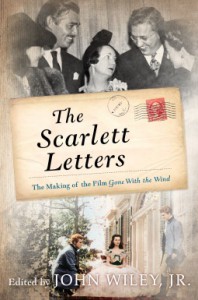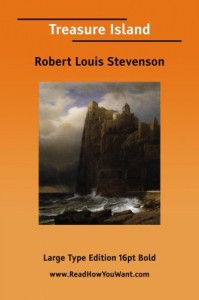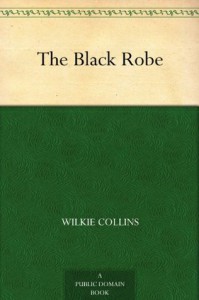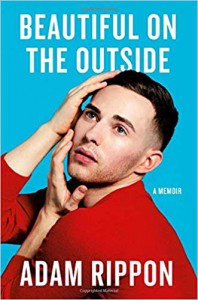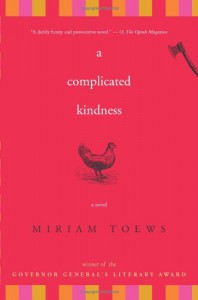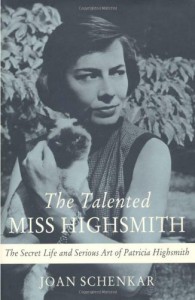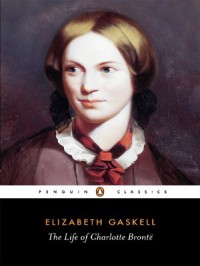
I'm sure I'm not saying anything very original when I write that the principal virtue of Mrs. Gaskell's Life of her friend Charlotte Bronte is the immediacy, both chronological and, to a degree, personal, between the life and the writing of the life; while, on the other hand, the principal drawback of the work is a tendency to suppress uncomfortable or unflattering details, not just because of Victorian prudery (though there's some of that at work) but also because the biography was written when Charlotte's one remaining close relative, her father, was still alive and was in fact the one who asked for the book to be written.
I find it interesting, though it perhaps says as much about me as about Bronte, that the passages I have chosen to highlight as I read almost all refer to her opinions on other authors. It also, I think, says quite a lot about Mrs. Gaskell's choice of materials from the reasonably large amount of correspondence (most of it from one close friend, though) she had at her disposal.
Here's a passage that I find in equal measure fascinating and irritating (the latter because the entire set of recommendations, to a female friend, are premised on what is "safe"):
You ask me to recommend you some books for your perusal. I will do so in as few words as I can. If you like poetry, let it be first-rate; Milton, Shakspeare, Thomson, Goldsmith, Pope (if you will, though I don't admire him), Scott, Byron, Campbell, Wordsworth, and Southey. Now don't be startled at the names of Shakspeare and Byron. Both these were great men, and their works are like themselves. You will know how to choose the good, and to avoid the evil; the finest passages are always the purest, the bad are invariably revolting; you will never wish to read them over twice. Omit the comedies of Shakspeare, and the Don Juan, perhaps the Cain, of Byron, though the latter is a magnificent poem, and read the rest fearlessly; that must indeed be a depraved mind which can gather evil from Henry VIII., from Richard III., from Macbeth, and Hamlet, and Julius Caesar. Scott's sweet, wild, romantic poetry can do you no harm. Nor can Wordsworth's, nor Campbell's, nor Southey's--the greatest part at least of his; some is certainly objectionable. For history, read Hume, Rollin, and the Universal History, if you can; I never did. For fiction, read Scott alone; all novels after his are worthless. For biography, read Johnson's Lives of the Poets, Boswell's Life of Johnson, Southey's Life of Nelson, Lockhart's Life of Burns, Moore's Life of Sheridan, Moore's Life of Byron, Wolfe's Remains. For natural history, read Bewick and Audubon, and Goldsmith and White's history of Selborne. For divinity, your brother will advise you there. I can only say, adhere to standard authors, and avoid novelty."
(The casual admission that she didn't bother with reading history made me smile).
And here, although no doubt quoted to death in the critical literature, are her thoughts on Austen:
Why do you like Miss Austen so very much? I am puzzled on that point. What induced you to say that you would have rather written "Pride and Prejudice,' or 'Tom Jones,' than any of the 'Waverley Novels'? I had not seen 'Pride and Prejudice' till I read that sentence of yours, and then I got the book. And what did I find? An accurate, daguerreotyped portrait of a commonplace face; a carefully-fenced, highly-cultivated garden, with neat borders and delicate flowers; but no glance of a bright, vivid physiognomy, no open country, no fresh air, no blue hill, no bonny beck. I should hardly like to live with her ladies and gentlemen, in their elegant but confined houses. These observations will probably irritate you, but I shall run the risk.
The liking for Scott appears to be genuine: on her one trip north to Scotland, she made a point of spending time in Scott country & at Abbotsford, and she also mentions elsewhere the Scott monument as one of the highlights of Edinburgh.
Gaskell leaves us with a rather sad portrait of a highly intelligent woman, bedevilled by lack of self-esteem and recurrent depression, and trapped by circumstance (unhealthy surroundings and susceptibility to an infectious disease). It's amazing, in fact, that she produced three high-quality novels before her untimely death (four, if you count the first-written but only posthumously published The Professor), although it's less amazing that the first-published, Jane Eyre, which propelled her to a most uncomfortable celebrity status, is still generally acknowledged to be the best.
Inevitably, a biography of Charlotte will by default also be a primary source on her siblings. Some of the details about Emily, especially one violent incident with her dog, remain uncomfortably in the memory. One can sense that Mrs. Gaskell has to exert herself to temper what was probably a fairly common reaction to the most unsociable of the Brontës - sheer dislike. Here is her summary of the relationship between the sisters, as she saw it:
Emily was impervious to influence; she never came in contact with public opinion, and her own decision of what was right and fitting was a law for her conduct and appearance, with which she allowed no one to interfere. Her love was poured out on Anne, as Charlotte's was on her. But the affection among all the three was stronger than either death or life.
Mrs. Gaskell was a better contemporary biographer than Charlotte Bronte would have had reason to expect: she consulted widely instead of just making the work a memoir of her own association with Bronte, and as another woman writer, she had a particular sensitivity to the motives and circumstances under which Bronte wrote, or didn't write. Different though they were, in personality and in politics, Mrs. Gaskell had strong grounds for understanding and sympathizing with her subject, and she shapes her narrative well. If a modern reader grinds her teeth at one of the sympathetic motives of that narrative - to defend Charlotte Bronte against contemporary accusations that she was coarse, vulgar, unfeminine, etc, accusations that we now see as absurd - still, there was enough detail and enough intelligent analysis brought to the shaping of that argument that after all these years, we can still see this biography as a primary source on a very interesting writer.
As with all contemporary sources, too, reading this book was a motivation for me to seek out a more recent biography, with all the promise of perspective and (possibly) wider-ranging sources that such a work will have. In particular, I look forward to exploring the one obviously gaping hole in this biography, the nature of Bronte's relationship with her teacher/employer Constantin Héger, in Belgium, who leaves his mark so heavily on her novels.

 10
10


 1
1

![Best Russian Short Stories [With ATOC] - Various, Thomas Seltzer](http://booklikes.com/photo/max/200/300/upload/books/book.jpg)
